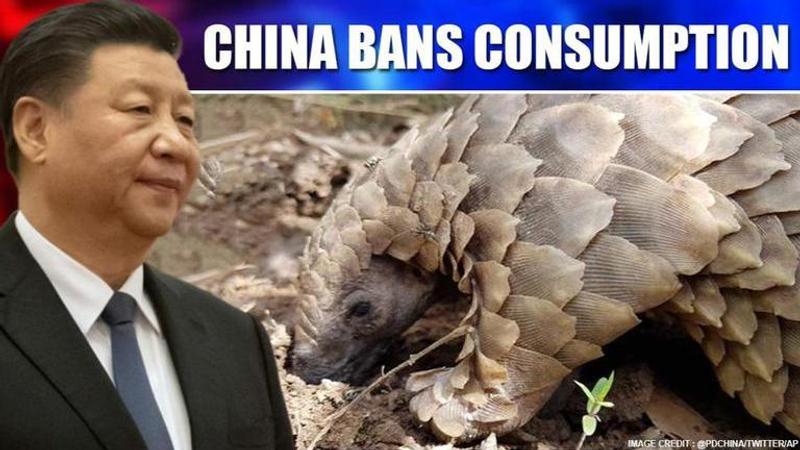Published 08:52 IST, April 29th 2020
China bans hunting & consumption of wild animals amid criticism of wet markets amid Covid
In a massive development, China's People's daily on Tuesday reported that the country has passed regulations banning the hunting and consumption of wild animals

Advertisement
In a massive development, China's People's daily on Tuesday morning reported that the country has passed regulations banning the hunting and consumption of wild animals and their products. It further stated that the step has been taken to better safeguard people's health and livelihoods, adding that violators will be severely punished. The ban will come into effect from June 1, it said.
This comes as China faces international criticism over the outbreak of deadly coronavirus that has so far claimed 217,968 lives and has infected 3,138,097 people worldwide. Since the outbreak of Covid-19, repeated appeals have been made to China to shut all their wet markets that have the potential to expose humans to health risks through the introduction of zoonotic disease. It remains to be seen how this new ban would impact wet-markets, which have opened again.
Wet markets in China sells fresh meat, fish, produce, and other perishable goods as distinguished from "dry markets". It gets its name from the floors being constantly wet from the spraying of fresh produce and cleaning of meat and seafood stalls. A wet market in the central Chinese city of Wuhan is believed to be the source of the coronavirus pandemic that began in December last year. Often, these wet markets sell more rare animals, not normally found in the edibles sections of other countries.
Wuhan lab leaked virus?
However, claims have also been made that the virus was leaked from a Chinese lab in Wuhan. On April 19, a US media in an investigative report claimed that the initial transmission of the virus was bat-to-human and the "patient zero" worked at the laboratory where it was being studied in the Wuhan Institute of Virology. Calling the virus a naturally occurring strain among bats and not a bioweapon, the reports also add that the lab employee was accidentally infected before spreading the disease among the common people outside the lab in Wuhan city.
According to the news agency, the Wuhan wet market which was initially identified as the place of origin of the virus never sold bats. However, China blamed the wet market to deflect blame from the laboratory. The report further mentions that the virus was being studied in the lab as an attempt by the Chinese Communist Party (CCP) to demonstrate that its efforts to identify and combat viruses are equal to or greater than the capabilities of the United States.
READ | Battling calls for intl probe into COVID-19 origin, China says it has no legal basis or utility
China denies all claims
However, Wuhan Institute of Virology Yuan Zhiming outrightly denied the claims. Zhiming in an interview with the Chinese state media called it "impossible" and said that there's no way the virus came them. Zhiming said that none of his staff had been infected, and the "whole institute is carrying out research in different areas related to the coronavirus". The laboratory’s director said that media outlets are trying to mislead people. “As people who carry out viral studies we clearly know what kind of research is going on at the institute and how the institute manages viruses and samples,” he said. “I know it’s impossible.”
Criticism of traditional Chinese lifestyle habits and customs isn't just a post-Covid phenomenon.It has long been criticised for putting entire species under threat. Traditional Chinese Medicine (TCM) has extended this threat to species worldwide, such as in the case of Rhinos which are butchered in Africa for their horns, and for bringing into question the survival of donkeys, which are also now sought in China for 'medicinal' reasons.
08:51 IST, April 29th 2020




